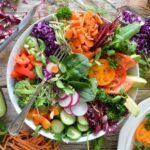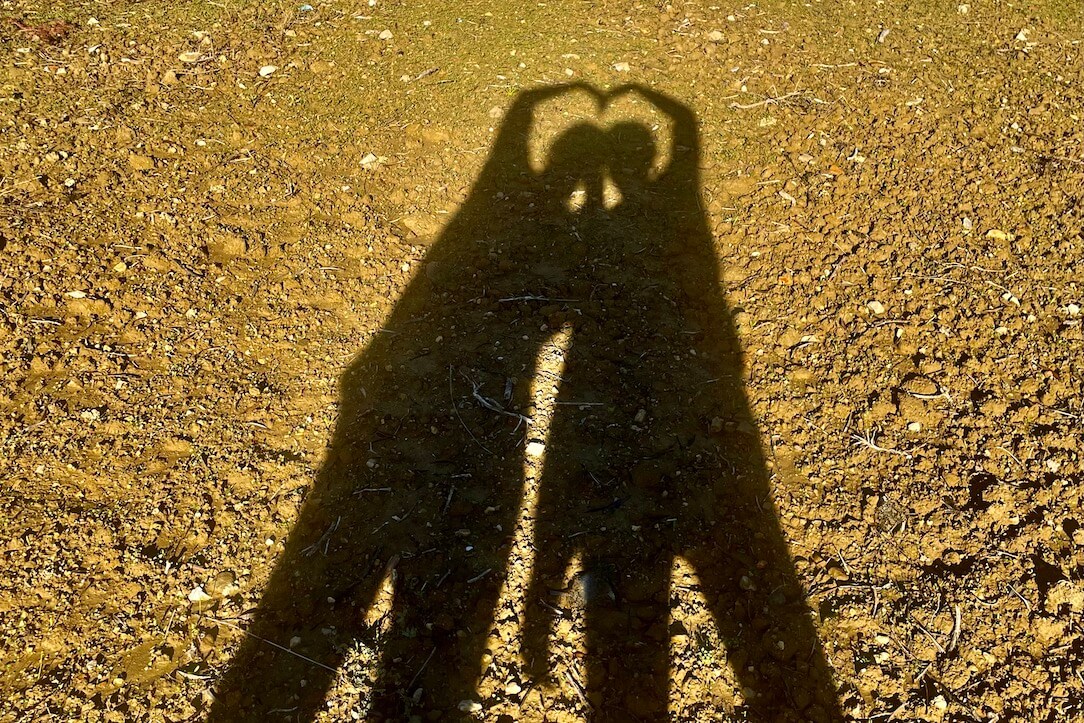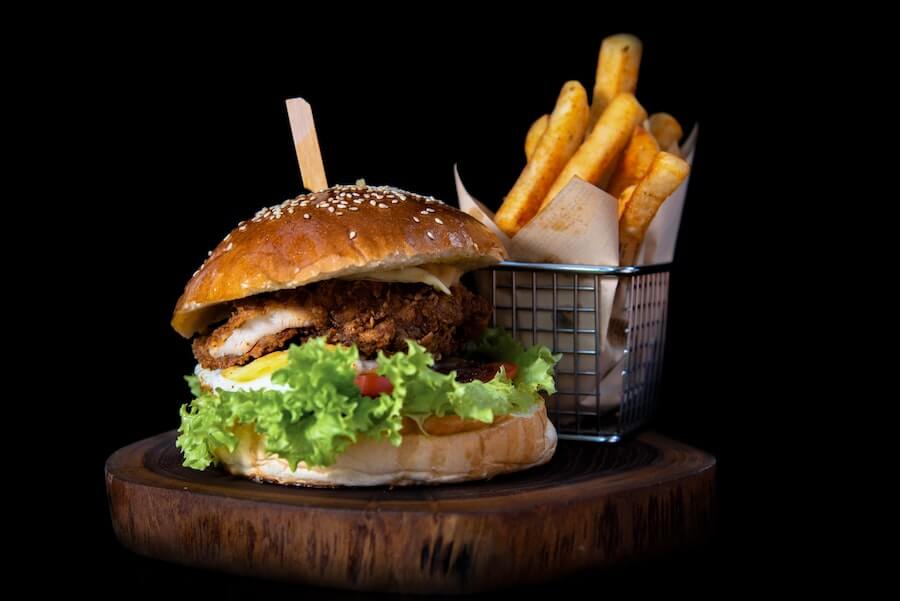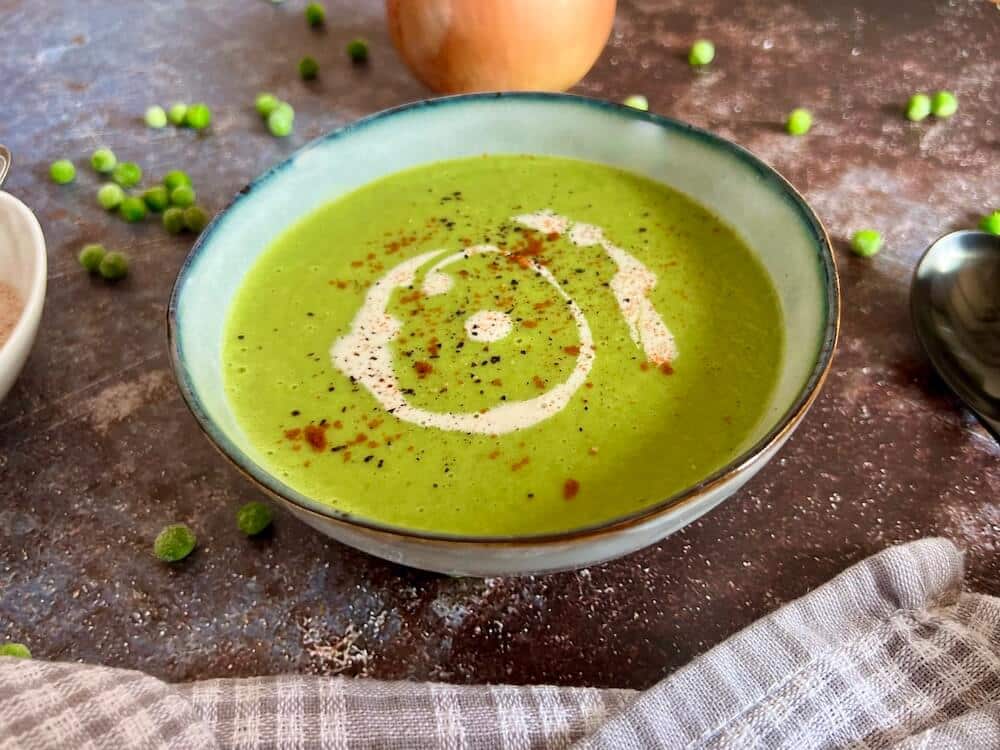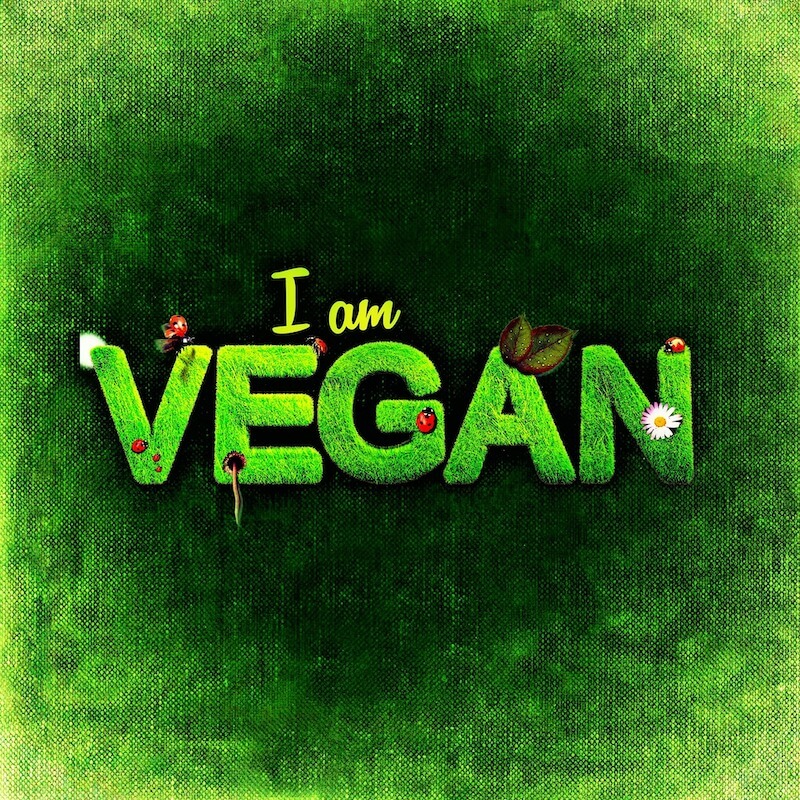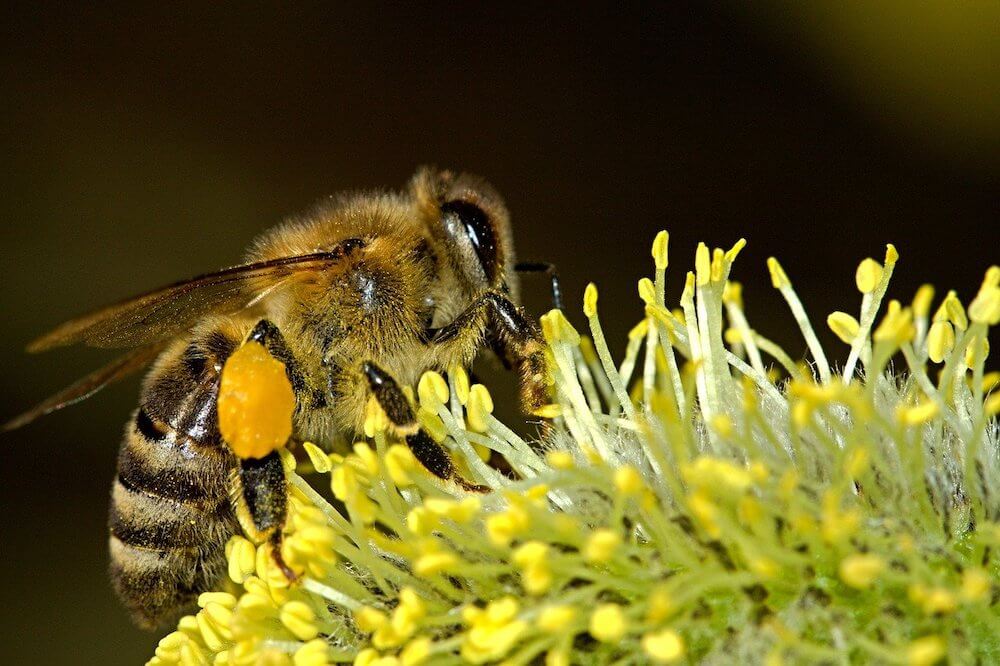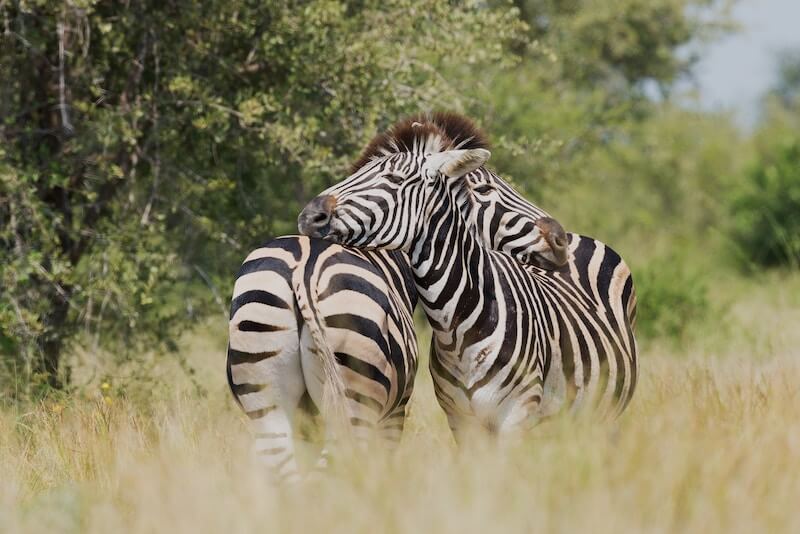If you’re curious about going vegan but not sure how to go about it this simple guide to starting a vegan lifestyle will help you find the way to making the change over easier.
Whether your dream is to become 100% vegan or not.
Going vegan is one of the most powerful changes you can make in your life.
But if you’re only looking to gradually include more a more vegan way of living into your lifestyle, that’s fine too. It’s step by step. Always.
Or maybe you’ve just started dating a vegan person so you’re interested in making a mixed diet relationship work. If so, know that it can be done!
Table of Contents
First of All, What is a Vegan Lifestyle?
The word vegan in itself doesn’t actually refer to a diet but rather to a whole lifestyle philosophy.
While you may choose to follow a vegan diet without adopting a vegan lifestyle, it’s important to recognise the distinction between the two.
A vegan diet means you eat non-animal-origin foods while a vegan lifestyle tries to do as little harm as possible to the environment around us, as well as valuing the lives of animals as being of equal value as ours.
Vegan Food Vs Vegan Lifestyle
If you’re interested in eating vegan food every day and you switch to a plant based diet, it still doesn’t actually mean you’re a vegan.
It will mean that you’re someone who eats a vegan diet, or is plant based.
Being vegan means supporting the move toward peaceful living as much as is possible. Of course, all of us will unwittingly support things that are not ethical, sadly, because there are so many unethical products out there, and unless we’re perfect, we’re bound to make mistakes.
And we’re not perfect.
We just want to try and support the world we live in. To give back. To cherish and to respect all living things.
The intention of a vegan lifestyle is to support ethical, moral products, which are both sustainable and cruelty free.
In fact, veganism is based on sharing the love for all living things. And it often comes as a surprise, after making the first move towards veganism, how much you gain from this way of life.
A vegan lifestyle promotes a peaceful, non-violent lifestyle that respects all life as being worthy of our love and respect. And vegans also want to protect the planet which we live in.
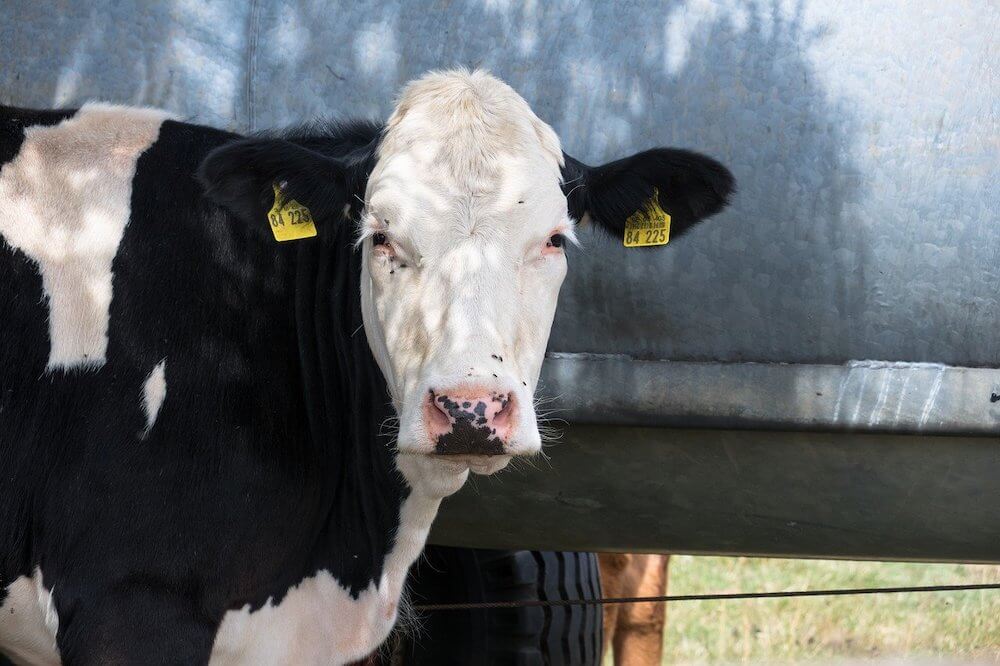
A Vegan Lifestyle to Promote Peace
People who live a vegan lifestyle share this desire in common. To avoid causing any unnecessary suffering to other living beings; to refrain from the utilisation of animals and instead, to respect them as equal life-beings as ourselves.
No one species has more right to be alive than the other. No one species is superior to the other. No one species should be abused for the pleasure of the other.
Vegans believe that the world can exist in harmony and that we humans can use our intelligence and our education to put an end to the extreme suffering that is currently considered ‘normal’ in the meat, dairy, egg & leather industry (among others).
And it doesn’t stop there. Almost every industry puts the profit margin above the welfare of the people or animals who get abused in its production. It is we, as consumers, who can wake up and say NO to the current model of living.
How Can You Begin to Change Towards a Vegan Lifestyle?
Everything you see in your house (and it isn’t easy to change this) comes from a string of people and/or animals who have been used in the creation of that item.
From household cleaning products to furniture, to clothes. So ultimately it is you as the consumer who decides whether you support the Fairtrade option &/or the vegan option, or the mass-commercial, profit driven option.
You may be thinking: Come on! You can’t expect me to change everything I buy??
Well no, sadly it just isn’t that easy to do so (otherwise I would have already completely changed everything in my household).
We have to start with the big and work our way down to the smaller things step by step. And finding vegan products isn’t always easy. I’ve recently bought a pair of NAE vegan boots, which I love, but it took quite a lot of research on my part to find them.
I also bought an Emma mattress but then discovered it isn’t biodegradable. My fault for not doing enough research; I should have known better, but these kind of mistakes are impossible to avoid. Because we aren’t perfect.
The most obvious form of animal abuse takes place in the name of the meat industry, the dairy industry and the leather industry. Once you’ve given up supporting those three monsters, you can turn your attention (or at the same time if you like) to cosmetics and household goods.
I would have thought that cruelty-free, i.e. free from animal testing, would be the norm these days, but sadly it isn’t. But with just a little effort you can source cruelty-free, vegan cosmetics, and that’s one more step towards a non-cruel world.
When you’ve mastered the cosmetics, there’s the household cleaning items, the clothes etc. But it takes many years to learn about the companies, and discovering which are more sustainable is no mean feat.
I’ve found that washing powder is completely replaceable with natural washing nuts. Not only do they last forever (not literally), but they’re completely natural and save you tons of money. As well as that you’re cutting down on all that plastic in the form of the bottles of washing liquid. Click through to see the washing nuts on Amazon.
Starting a Vegan Lifestyle: Keep a Positive Attitude
Go through the vegan learning curve with a positive attitude and always remember to congratulate yourself on the steps forward that you make. There’s only gain to be had and nothing negative whatsoever.
Being vegan is a choice that will bring you so many rewards. My advice to you would be to make one tiny step each week and never to beat yourself up or have regrets. Treat this journey as the exciting adventure that it is.
If you switch to a vegan solid shampoo (for example) and start changing your diet to include more and more plant based foods, don’t worry about things you haven’t changed yet, just keep going in the right direction, in your own time. Every step is positive.
How to Start Eating Vegan
Start by including vegan foods in your normal weekly food prep. Begin to experiment with new recipes, new eating ideas and explorations into vegan territory. Learn how to cook without recipes too, so that you’re not dependant on finding great recipes every day.
Don’t try to replace your meat meals with a processed vegan equivalent, but instead learn how to make balanced meals using real foods. This is a much healthier, tastier and cheaper approach to becoming vegan, and it needn’t be difficult.
Grow your list of real (vegan) foods before you start reducing your non-vegan foods. As you begin to love your new way of eating it will become (relatively) easier to stop buying and eating meat, fish and dairy. But you need to give yourself time.
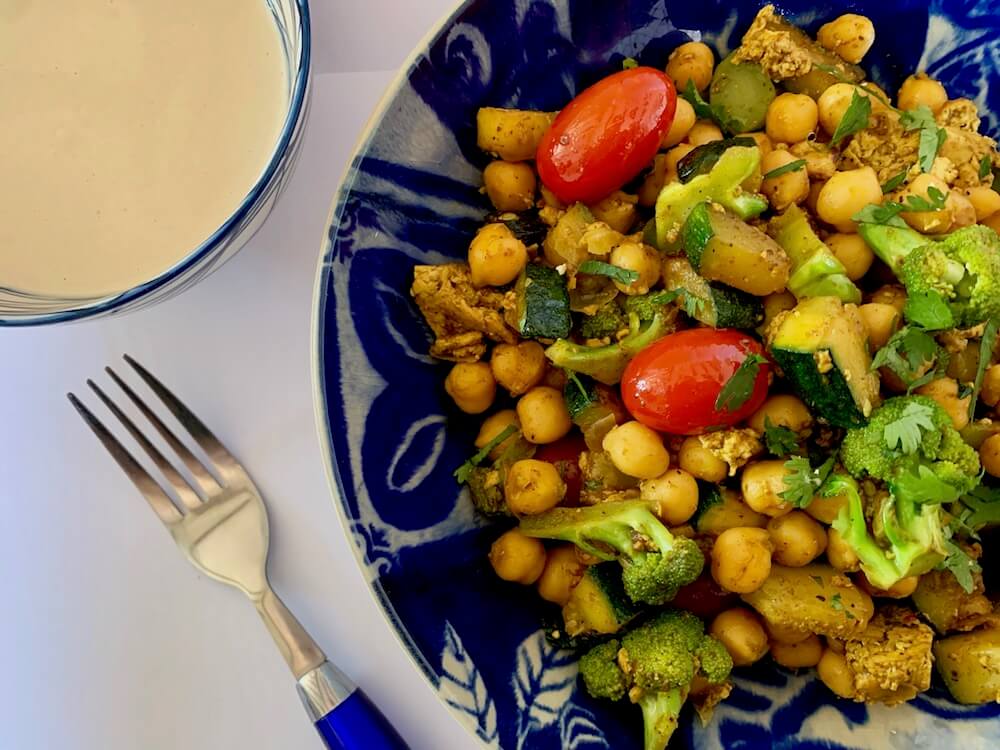
Remember that it’s a long process, and don’t put yourself under any sort of pressure. Work on changing your inner perception of the foods you’re choosing to leave behind rather than on just banning them.
It’s so incredible when you can just buy an assortment of veggies and rustle up a scrumptious, nutritious feast from them and you know that you’re making a positive contribution to changing the world.
Because we need to change. We need to see what’s staring us in the face, that the current system doesn’t work for the animals, it doesn’t work for your health and it doesn’t work for the planet.
How much more evidence do we need?
Some Easy Vegan Meal Suggestions
Vegan Breakfast Ideas
A delicious fruit bowl is one of the most popular vegan breakfasts you could make. Add some ground flax seed, chia seed and hemp seed on top for a nutritious omega 3 & protein boost.
If you’re more of a fan of eggs for breakfast, to replace scrambled egg, you can make a delicious, easy, and quick meal with this tofu scramble recipe. It’s full of protein and if you’re eating it for lunch instead of breakfast, it can be coupled with veggies and beans to make a complete feast.
For a filling breakfast, you may like to make some delicious vegan pancakes. These homemade pancakes are gluten free, healthy, protein-rich and tasty. They’re easy to make and can be served with fruit, maple syrup, or peanut butter!
Vegan Snacks & Lunch
For a quick snack, tofu makes for an easy tapas with this baked tofu snack recipe.
Chickpeas are health-promoting and a valuable contribution to a great vegan diet. You can make a quick, healthy snack by making this roasted chickpea snack, or you can use it as a complete meal by adding it to a buddha bowl.
Another thing that goes great in a buddha bowl is a falafel, or these vegan balls that are similar to falafel, but can be made from leftovers.
And where would life be without soup? It’s so easy to make a delicious soup! For a basic recipe, see this easy vegetable soup recipe, and it’s very simple to make a vegan stock for soup. There are so many soups: tomato soup, pumpkin soup, carrot & sweet potato soup, potato soup and Vegan French onion soup, to mention just a few!
When you go vegan, you take salads to a whole new level. Try this king salad, a gluten free pasta salad, a zucchini carpaccio salad, a quinoa salad or a grilled summer vegetable salad. Never again will you think of just lettuce when you hear the word salad!
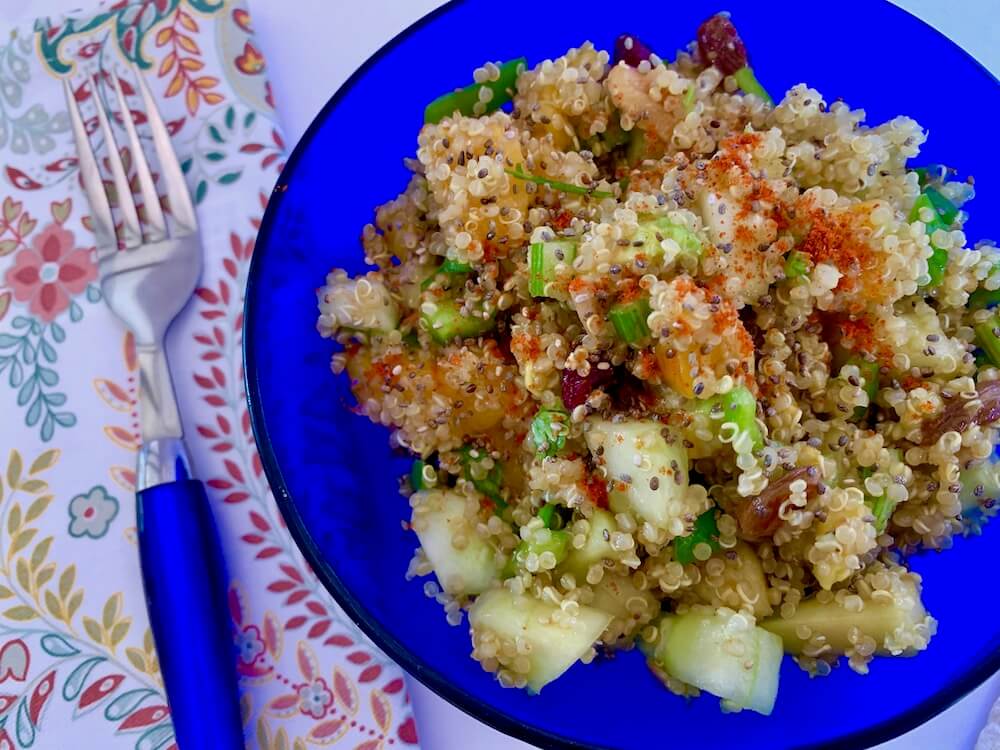
Vegan Main Courses
There are too many great vegan recipes to list here, but some stand out as being really handy to get under your belt.
Some of my favourites are this vegetable rice or nasi goreng, vegetable noodles or bami goreng, a simple vegan & gluten free way to make a cheat’s pizza and a basic eggplant curry recipe to pull out of the hat whenever you fancy something a bit spicy (or not).
For a complete meal that can be made with ease, take a look at this hands-off dinner recipe, and if you have a lot of zucchini, here’s a post about 9 easy zucchini recipes.
Vegan Sweet Tooth Protein Boost
For the sweet tooth, you can’t miss out on these absolutely yummy, no bake vegan balls, made with 100% healthy ingredients.
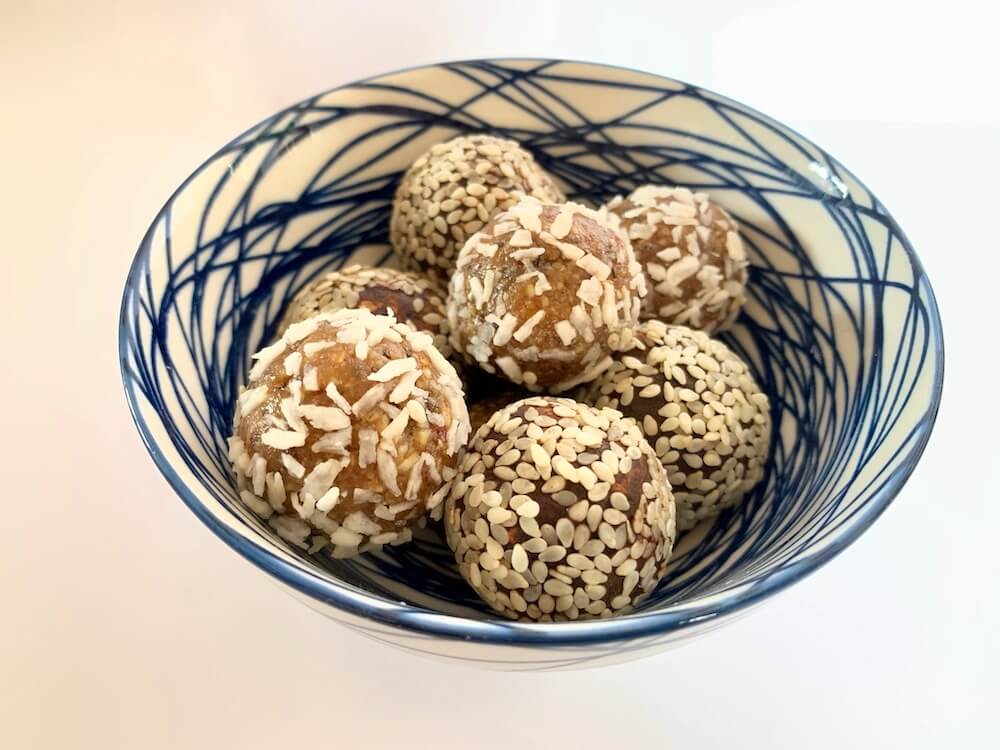
Kitchen Tips for a Vegan Lifestyle
Learn how to make a few simple vegan sauces that will pick up almost any meal, and a traditional hummus to go on the side.
You can make a simple vegan butter by following this recipe and to replace grated parmesan, try this instant vegan parmesan recipe. It’s a doddle to make this simple vegan mozzarella and if you’re worried about missing (dairy) cheese, read this cheese recipe which comes with an article on how to give up traditional cheese.
Finally, we have a post about 10 tips for the vegan kitchen to make your life easier, which shares some of the tips and tricks that I’ve learned over the years.
How to Transition to a Vegan Diet 100%
The way to transition to anything new in your life always starts with the mind. You need to read enough, see enough, hear enough – whatever format it’s in – you need to change your fundamental beliefs about what you eat.
If you don’t want to support cruelty any more, your subconscious mind needs to re-program itself. You can say ‘I don’t want to eat meat,’ as many times as you like, but if your subconscious mind isn’t activated, then you’ll still crave the meat, because your subconscious will think you’re missing out on something.
Only when you really change your opinion on a deep subconscious level; then you will never struggle with changing a habit. You’ll simply be ecstatic that you are no longer eating those things which you don’t want to eat.
Be patient; you’re reprogramming your hard drive.
How to Activate (and Influence) Your Subconscious Mind for Transitioning to a Vegan Lifestyle
When you ‘cross a line’ within your subconscious mind, that’s when you’ll experience complete freedom. But before crossing the line you can still begin your new journey of plant based eating!
The subconscious needs to be fed the facts repeatedly until it believes the information which started you off down this path in the first place.
Even though you think you’ve made up your mind, continue to watch movies like the Game Changers, What the Health, Cowspiracy, Forks Over Knives, Vegucated, H.O.P.E and more.
You can also research information on the internet and make it part of your weekly routine. Knowledge will turn you off eating cruelty-created food. Why is it that nobody wants to know about the cruelty behind closed doors? Yup, because they know it isn’t cool.
Have you ever been violently ill after eating something, and then, from that day on, whenever you look at that food, it no longer attracts you? Or what about alcohol? Have you ever been sick from drinking alcohol when you were young and then completely gone off that brand of drink? Martini used to be a classic for this scenario as it was so cheap, so young people could afford it, get ill on it, then never drink it again.
These are two examples of the subconscious mind at work. Your subconscious learnt that these foods or drinks make you ill (even if it was only once) so it runs a program to turn you off that food. When your subconscious mind is repelled by the cruelty involved in making a hamburger, you’ll look at the hamburger with different eyes and no longer with adoration.
Another way to change the subconscious mind is to use visualisations and manifesting techniques.
Trust me, when your subconscious is involved in the decision to become vegan, becoming vegan won’t be a struggle, it will be a joy.
Bottom Line on Starting a Vegan Lifestyle
- Educate yourself as much as you can so that you’re continually feeding your subconscious mind with evidence to back up your conscious decision. Watch movies about veganism, read the articles.
- Read the data on how going vegan supports your health, the well-being of animals and could literally save the planet. These facts will help you in your resolve to stay vegan.
- Start by including more and more plant based real foods in your daily diet before you begin reducing your meat intake.
- Learn how to make complete meals using real foods rather than buying vegan versions of your meat dishes (you can use those for occasional treats if you miss meat).
- Go as fast or as gradually as suits you and your lifestyle and always look at the positive side. If one day you eat something you wish you hadn’t, remember this is a journey, it doesn’t have to happen all in one instant. In fact, it can’t happen in one instant. Your mind needs time to assimilate the new information and subsequent information.
- Be sure to cover your nutritional needs (more on this below).
What Can I Eat as a Vegan?
This question always surprises me because of the word can. You can eat anything you want to.
What does a vegan choose not to eat? That would be a better way to ask the question, and although it might seem pedantic, it’s also an important phycological message to your subconscious mind.
When you use words like can & can’t, it sounds as though you’re being controlled by some outside force. Becoming vegan is the opposite; it opens doors and is an expansion rather than a limitation. And it is always your choice.
As a vegan, you don’t want to support cruelty, so when you see that hamburger on your plate, instead of seeing a delicious piece of food, you see a piece of flesh that came from a suffering living being; it no longer looks attractive to you.
That doesn’t mean you’ll never eat a hamburger again. You can switch to vegan hamburgers, but remember, to get the health benefits of going vegan, you will need to make healthy choices. The healthiest foods to choose are not processed. Use primary ingredients to create easy, delicious meals.
It’s entirely up to you whether you want to be 100% vegan immediately or whether you’re looking to ease into it gradually. But either way, it’s important to read a lot and watch a lot of documentaries on the subject so that your subconscious mind knows what it is you’re supporting and why.
Otherwise you may find yourself wanting to be vegan while inwardly feeling as though you’re missing out on meat. That’s because in your subconscious mind you still believe all the thoughts that were programmed in in the past (that meat is good, that meat is necessary, that it’s natural to eat meat etc.)
It’s this process of reprogramming our inner beliefs that can take time. So when you take a step towards that, there’s no fail: it’s win win.
What Can’t a Vegan Eat?
In much the same way as the question above, a vegan can eat anything but there are things they don’t want to eat. The obvious ones are meat, fish, dairy & commercial eggs. As well as these, many daily items contain hidden animal products.
For example, red sweets can contain cochineal – a type of insect which is used for colouring food red. It used to be listed as an ingredient but these days, the EU lists it as E-120 so for somebody who is not up on these kinds of things, they would have no idea that they are in fact eating a scale insect that is harvested and killed for making dye. The name of the dye from the Cochineal insect is Carmine and it can also be listed as an ingredient called ‘natural-red’.
Apart from hidden ingredients like cochineal (of which there are many more), there are some major foods which vary from vegan to vegan as to whether they will eat them or not. The bottom line is you should always do what feels right for you and not try to obey a set of rules but rather to make your own choices and live the way you want to live while honouring the integrity of animal life as much as is practical and applicable in your circumstances.
The more controversial vegan foods are:
- free range eggs
- honey
- beer
- wine
Why Don’t Vegans Eat Eggs if They’re Free Range?
There are two sides to every story and everyone has their own viewpoint, so again, choose what most resonates with you.
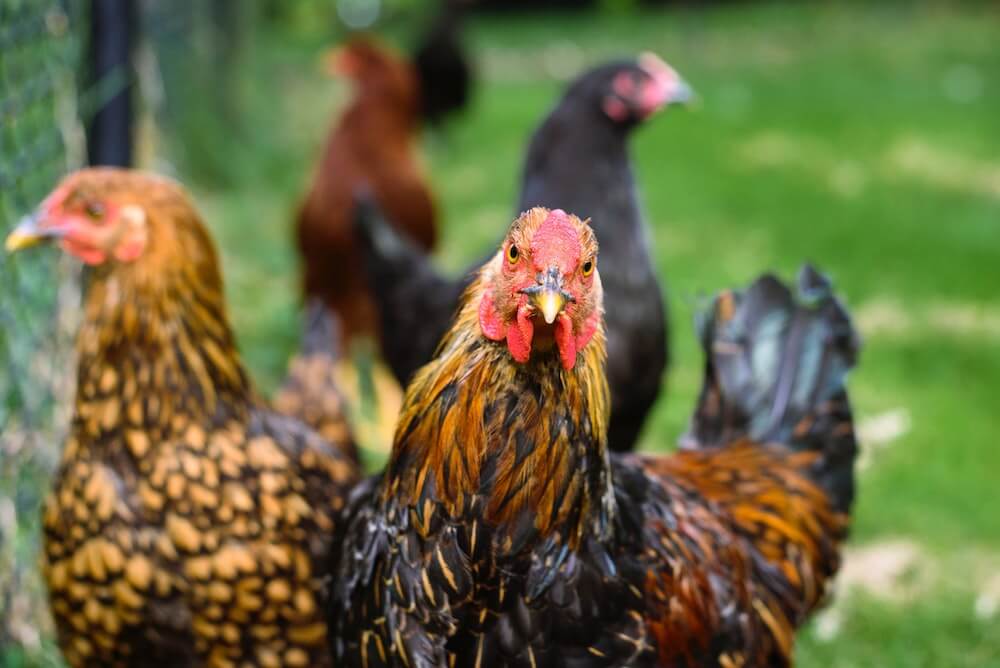
The reason why many vegans give up eggs altogether is because the chicken/egg industry is extremely cruel and by buying chicks to rear your free range egg-laying hens, you’re supporting that industry.
It’s quite horrible and unbelievable the first time you see a video of a factory where one-day-old chicks are being run along a conveyor belt and examined by people.
The chick is lifted off the conveyor belt and then thrown onto the correct option: option a) is another belt leading to boxes for rearing/selling the chicks and option two is a second belt leading to a set of blades to chop up the live one-day-old chick. And the reason?
Because he’s a male. So you see, eating free range eggs in itself isn’t harming the chick because the egg is unfertilised, but it can only be that way because we eliminate all the males at birth.
Another reason against supporting egg-eating is that chicken have been bred to lay far more eggs than they would naturally do so, and this in turn can put unnecessary strain on the chicken.
If the world became a more friendly place where people cared for one another and for the chickens and other animals, then eating free range eggs, (when the happy chicken isn’t broody and doesn’t want to sit on the egg herself), could be completely acceptable.
There are also vegans who rescue chickens from intensive farms and give them a life of freedom. And nobody could complain when they collect those eggs for their breakfast.
If you want to eat a free range egg, you will probably come across someone who says that you aren’t vegan if you eat eggs but they are missing the point: to ensure the wellbeing of living beings.
This is about doing what you can; not about abiding by a set of rules.
But be sure you’re not being fooled into thinking commercial free-range eggs are happy eggs – no, we’re talking about the kind of free range where you have your lovely chickens running around free in your garden, scratching, socialising, picking at worms and living a happy chicken life!
What’s the Story With Honey and Vegans?
Bees make honey to help them survive through the winter. We come along and farm that honey. Well ok, we steal their honey.
This is one of the most complex arguments in veganism because while there’s absolutely no doubt that commercial honey can be produced using very cruel methods where the bees are killed off at the end of the season, the argument revolves around the smaller bee-keepers who produce honey by taking a portion of the bee’s production rather than all of it.
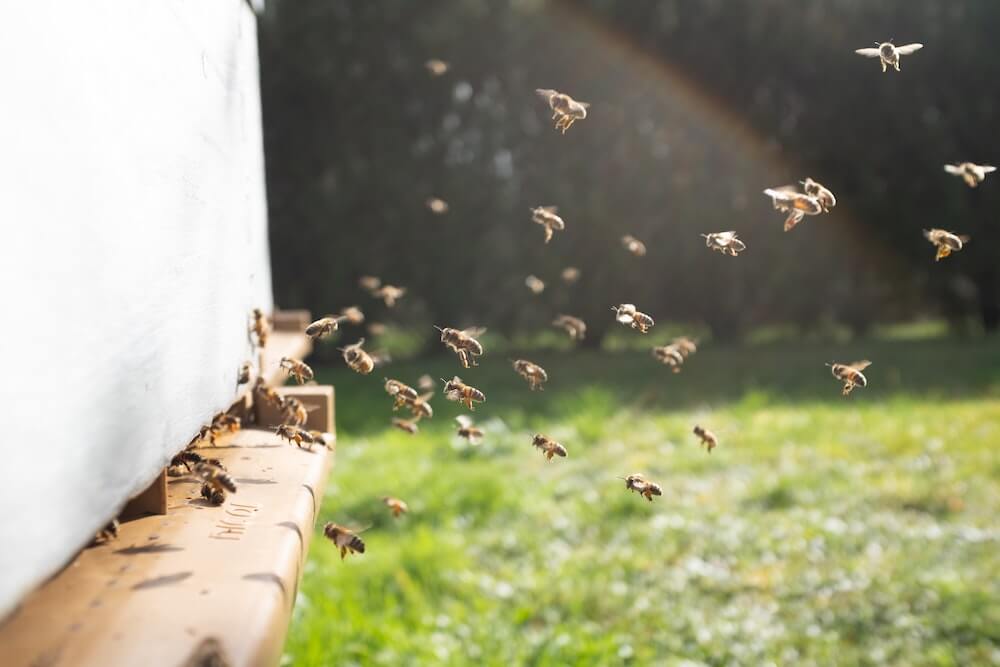
Some vegans feel that this is ok as it is more respectful of the bees, while others say it is still stealing the bee’s hard work.
As I have never liked honey anyway, I haven’t had to make an opinion on this one. I just don’t buy honey and never have. One thing’s for sure: if I were going to buy some honey, I would make sure it was from someone who cared for their bees and produced sustainable fair-trade (for the bees lol) honey.
Why Aren’t Beer and Wine Vegan?
Beer and wine may use animal sourced products in the production of the final product. A vegan lifestyle is about respecting all life forms, which includes your own life! So if you’d like to drink less alcohol, take a look at giving up drinking alcohol or breaking the love affair or how to change your relationship with alcohol.
Otherwise, if you want to still drink alcohol here’s the reason why not all alcohol is vegan.
Wine
When wine is made, it is filtered through ‘finings’ to remove some of the bitter tannins. The most common fining agents include blood and bone marrow, a milk protein called casein, egg whites, gelatin (a collagen ingredient taken from animal body-parts) and fish bladder protein called isinglass.
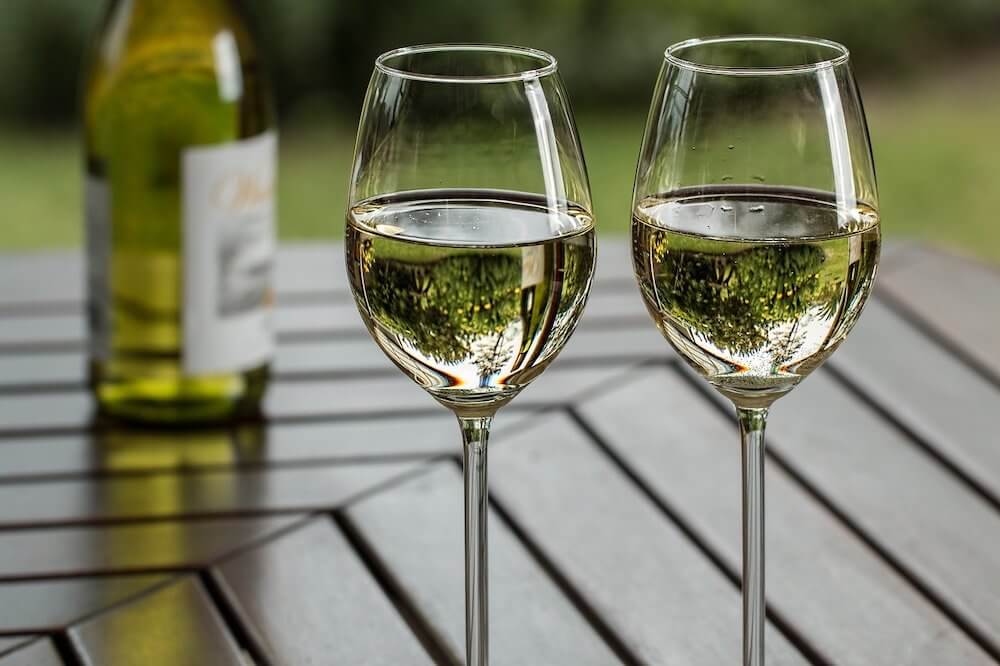
Although the animal products are not present in the final wine, the wine isn’t considered vegan because it’s been produced using non-vegan ingredients.
Vegan wines go through the same process, only using vegan equivalents: carbon, bentonite clay, limestone, kaolin clay, plant casein or silica gel.
Beer
In much the same way as wine, some beer breweries use finings to clarify the beer and reduce cloudiness. Some use animal finings to their beer, the most common of which is isinglass.
Many beers, however are naturally vegan, so it’s worth checking with your favourite brand to find out.
Common Arguments Against a Vegan Lifestyle (And How to Answer Them. . . )
It’s Natural for Humans to Eat Meat
In the natural world a lion will hunt for its prey and this is totally natural and in balance with the planet. A vegan isn’t trying to stop natural deaths.
All species (except humans) survive together in harmony – hunters and prey – sharing the same jungle, the same savannah. The lion doesn’t hunt more than it needs for its family to survive (as is the case with most, but not all, predators). Even the predators who do kill more than they need (a fox for example), it doesn’t kill enough to upset the natural balance or cause their prey to become extinct.
Only humans abuse their food source to such an extreme degree like we do. Humans factory-produce meat often without consideration for the animal, or the animal ever having a life. The animal has become a commodity rather than a living, breathing, sentient being.
Vegans want to give back the right-to-live-a-natural-life to the animals.
The argument that it’s natural to eat meat doesn’t take into account that it’s natural to do lots of things which we choose not to do! It’s also natural to not wear clothes, not brush teeth, not have a bathroom etc etc. We don’t live a natural life anymore and it isn’t necessary to kill animals for food.
It’s in our Nature to Kill (not true)
We are not natural born killers. A baby doesn’t have the hunting instinct in him like a kitten does. A kitten will start trying to play-hunt as soon as it can walk, and if you put a mouse in front of it you will immediately see the kitten practising and learning his predator skills.
If you put a rabbit or other small animal in front of young child, the child will smile and try to play with the rabbit.
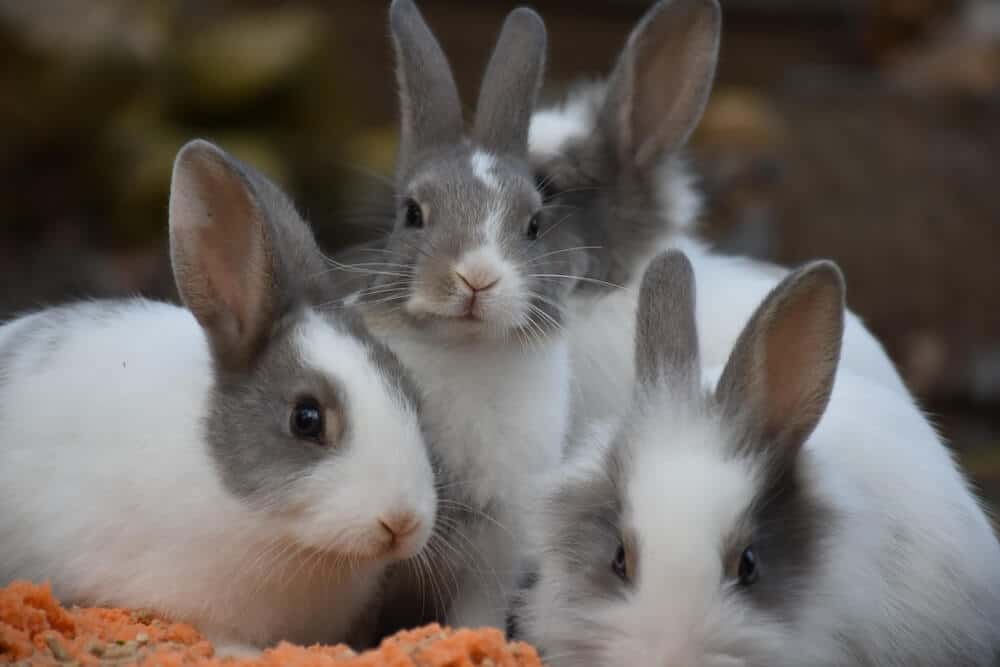
Zero instinct to grab the rabbit to kill & eat it. Killing is something we’ve been taught and we’ve learned. (Thanks to Gary Yourofsky who makes this point about young children very clearly).
Predator?
Biologically speaking, our bodies are not designed to out run a rabbit or a boar, let alone a gazelle! We simply don’t have the speed to catch any wild animal for food without the help of weapons: we are not natural born killers.
Our teeth are not designed like dogs are, to rip the meat off the carcass and swallow that meat straight down. No, we have molars for grinding up our food, and these molars are evidence of our historical ability to grind up a plant-based diet.
A dog bites the meat off the carcass and swallows it piece by piece. The dog doesn’t chew the food with molars, and the food passes relatively quickly through the digestive tract. For this reason, dogs can eat all sorts of bacteria without getting sick as a human would.
Sure, we have two canine teeth, but those are not enough of a weapon to make us into a natural predator.
Digestive System
Our digestive systems aren’t designed to eat large quantities of raw meat but are instead designed for digesting all sorts of variety food, including plant food. If looking at length of the digestive track as a guide to ideal food – herbivours tend to have the longest digestive track as needed for breaking down all the plant fibres (there are exceptions) and carnivores tend to have the shortest.
Compared to body length, humans have the same length of intestines as do elephants, much longer than carnivores.
The most probable natural way to eat for most of us would have been gatherers and scroungers, living of scraps of small meat and nuts, seeds, berries & veggies.
So the argument that we were born to eat steak every day is quite simply not a valid argument.
If We All Became Vegan, Domestic Animals Would Become Extinct
This argument presumes that the billions of animals growing up in captivity only to be slaughtered a short way into their life, is in some way a positive thing.
The extremely high number of animals in captivity is nothing to be proud of. If everyone became vegan, animals wouldn’t go extinct because everyone would be vegan and would therefore care about the future of the species so they would find ways to protect the species from extinction much like we have wildlife parks now.
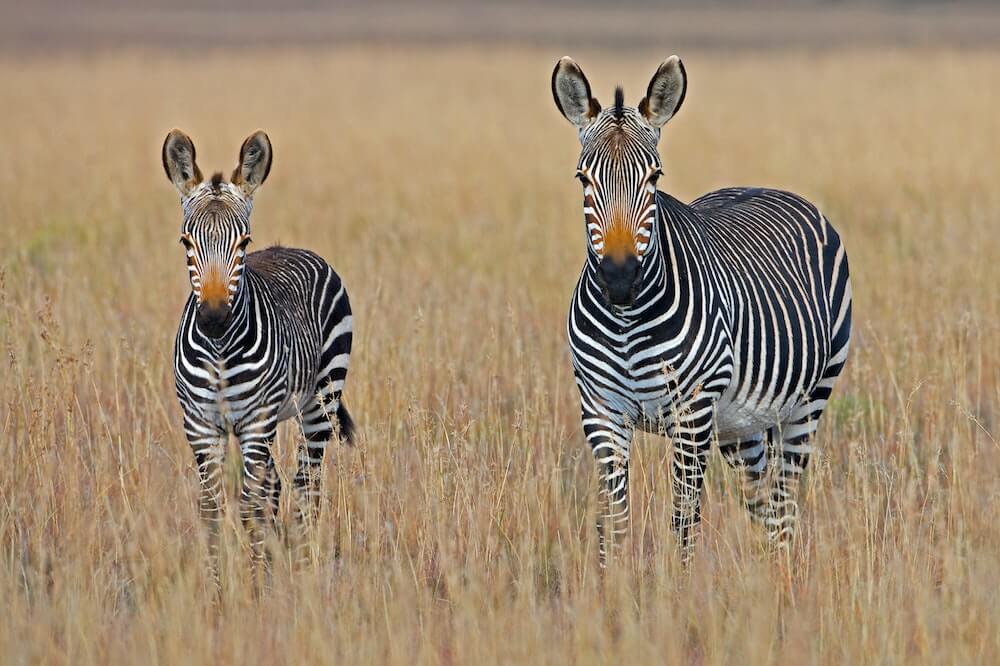
The reality is that it isn’t possible that in the near future every single human will become vegan. But it would be possible that every single human would develop a conscience and refuse to support (buy buying) unethical products which are products of pain and suffering and cruelty.
And if the world were predominantly vegan, protecting each individual species by allowing parts of the world to be dedicated to natural habitat, which would be better, a smaller number of healthy animals or billions being born to a factory life of brutality and murder?
I don’t think there’s any doubt about the answer to that question.
Leather Doesn’t Cause Suffering – It’s a By Product
Sadly this is so untrue.
It’s only when you go vegan that you begin to notice just how many things are made from leather. Leather is an industry in its own right and tragically, the millions of animals which are bred for their skin are even less protected than the animals raised for meat.
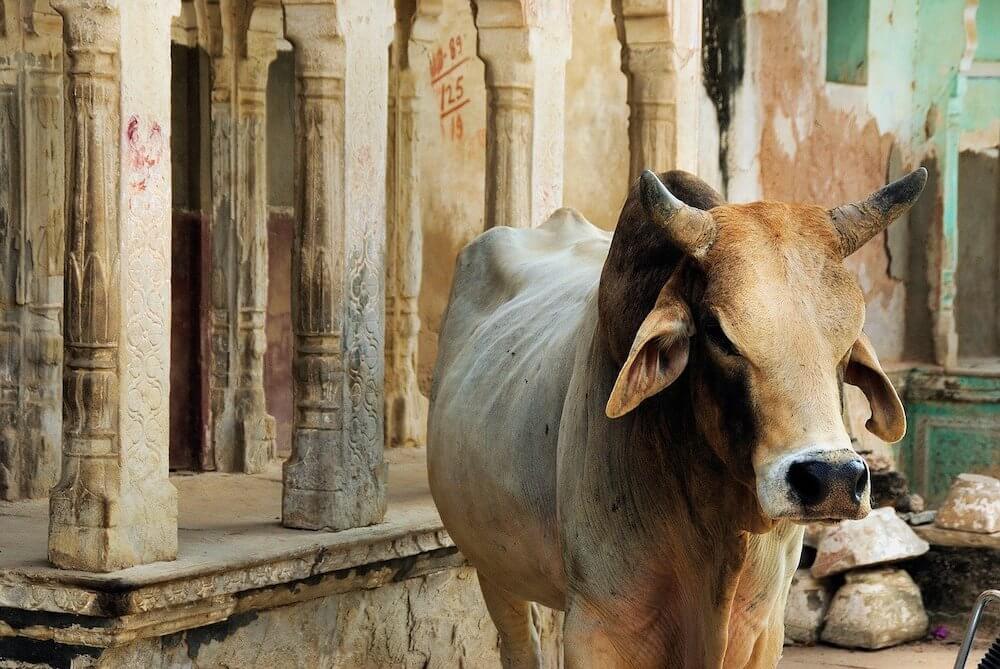
It’s true that a large majority of leather comes from animals who were killed for meat, or from cows who no longer produce enough milk so get sent to slaughter and used in the leather and pet food industry.
However, there are also luxury leather items which are made from slaughtering lambs and calves especially for their skins which produce a more expensive type of leather leather.
As well as these, many wild animals are slaughtered for their skins: about 3 million kangaroo skins are exported every year (including to the UK); they are hunted for their skin, often causing death to the joey as well as the mother.
Crocodiles, ostrich, snakes and lizards all fall prey to the leather industry and their skins produce what is considered to be a luxury leather item.
The leather industry is worth a fortune. Everything we have is leather. It is lucrative enough to kill for, so if enough people stop eating meat and continue to buy leather, the industry will continue to kill to support the businesses that thrive off the production of leather.
According to leatherindia.org, in 2018-2019 India’s leather industry exported 597.30 million dollars of leather to the UK, 659.18 million dollars to Germany and 893.68 million dollars worth of leather to the USA. These are just the top three examples of a long list of countries that buy leather from India’s leather industry.
In 2018-2019 the total value of the leather industry from India was US$ 5.69 billion. When you buy a pair of leather shoes, a leather handbag or a leather jacket you are not necessarily using up a waste product but rather supporting and creating an industry in its own right: to wear a product that was the skin of an animal.
You Can’t Get Enough Protein from a Plant Based Diet
This argument has already been proved wrong by many vegan studies, body builders, athletes, doctors, scientists and people who have turned their health around by adopting a plant based diet.
One of the most important movies that addressed this point is The Gamechangers, which follows the life & diet of modern day bodybuilders on a vegan diet.
Another movie that looks into the health benefits of a plant based diet is What the Health.
There are plenty of studies showing that plant protein is abundant in many forms. A complete protein is made up of 9 essential amino acids.
Quinoa, buckwheat, hemp seeds, chia seeds, and spirulina are all sources of complete proteins, but even foods which aren’t complete can be great sources of protein when pared with a complementary protein source.
A classic example is beans and rice. Together they make a complete protein as beans are low in methionine while rice has plenty.
How to Be Healthy on a Vegan Diet
A well planned plant based diet’s one of the most healthy diets you could choose (if not the most healthy). It’s perfect for preventing or reversing heart disease, high cholesterol and type 2 diabetes. It’s also great for weight management and longevity.
And if you’re anywhere near going through the menopause (remember perimenopause can start 10 years before you enter menopause) then a plant based diet is absolutely the way to go to ensure you get through those years without having your world turned upside down. Read more about a plant based diet and menopause in 5 steps to beat menopause naturally.
As already mentioned above, it’s best to focus on whole foods and real ingredients and leave processed foods out altogether or just eat them for a special occasion now and again.
By eating a wide variety of veggies, beans & pulses, you can cover your needs for protein vitamins and minerals, rich in antioxidants to fight the free radicals and keep ageing at bay.
One great way to ensure you cover your needs is to always keep in stock a variety of nuts and seeds and sprinkle them over your meals and into your salad. And remember to eat the rainbow! Each colour represents different antioxidants, so by eating a wide range of colours, you give yourself a great variety of health boosting nutrients.
Flax seeds, Hemp seeds, Chia seeds, pumpkin seeds and sesame seeds are the best ones to keep in your kitchen. I love smothering my food in seeds. For flax, you only need up to 3 tablespoons a day, but the others can be liberally added to your food, adding extra protein and nutrients.
I also keep a stock of walnuts and cashews. Walnuts are great for snacking on and cashews are indispensable for making cashew nut sauce and vegan cheeses.
Finally, it’s important to take a vitamin B12 supplement as B12 can’t be made by our bodies and is not available in a vegan diet. B12 is found in the earth, and in the olden days the grazing animals consumed vitamin B12 while eating grass, which was then transferred to the human via the meat.
These days, with the lack of grazing, unless the cattle are fed feed which is supplemented with B12, the meat will also be deficient. Therefore, vitamin B12 deficiency is extremely common among meat eaters as well as among vegans.
Take a supplement to ensure that you do not become deficient! And read about the astonishing effects of B12 here.
I hope you enjoyed this simple guide to starting a vegan lifestyle.
